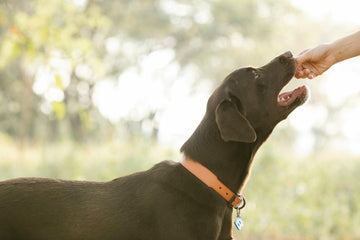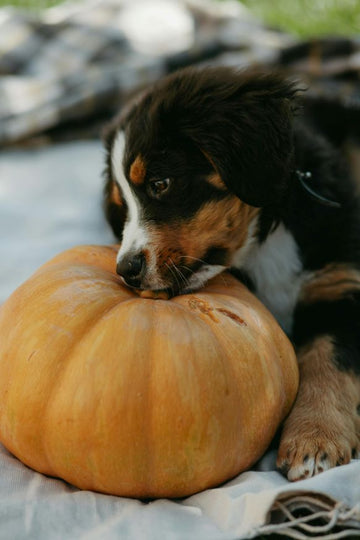When it comes to treating your dog, one size certainly does not fit all. Small and large breed dogs have different dietary, physical, and health needs, and these differences extend to the treats you choose for them. Treats that cater to your dog’s specific size and health requirements can make a world of difference, ensuring they are not only enjoyable but also beneficial. Let’s explore how to select the best treats for small and large breeds, taking into account factors like size, texture, nutrition, and more.
Key Differences in Treat Requirements
Choosing treats based on your dog's breed size ensures maximum benefit while avoiding potential risks. Here are the primary factors to consider:
- Size and Texture: Small dogs need treats that are small, soft, and easy to chew to prevent choking. Large dogs require bigger, more durable treats that can satisfy their natural chewing instincts without posing a choking risk.
- Caloric Content: Small breeds generally have higher metabolic rates and need calorie-dense treats for sustained energy. Large breeds, however, are more prone to weight gain, so lower-calorie treats are better suited for frequent rewards.
- Nutritional Requirements: While both sizes benefit from high-quality ingredients, large breeds often need treats with added joint support, like glucosamine, to maintain mobility. In contrast, small breeds are more prone to dental issues, making treats that promote oral health a priority.
Best Treats for Small Breeds
Small dogs require treats that are tailored to their tiny size and fast metabolism. Here are some great options:
1. Soft, Small Bites
- Why They Work: Small, soft treats are easy for tiny mouths to chew and can be given frequently during training without risking overfeeding.
- Example: Soft chicken or turkey training bites are perfect for quick rewards during training sessions.
2. High-Calorie Density Treats
- Why They Work: Active small breeds like Jack Russells or Yorkies need treats that offer quick bursts of energy.
- Example: Liver-based treats or small peanut butter bites provide protein and fat to keep your small dog energized.
3. Mini Dental Chews
- Why They Work: Dental health is a major concern for small breeds like Chihuahuas and Dachshunds. These chews are designed to reduce plaque and tartar while being easy to handle.
- Example: Look for mini-sized dental chews with a texture that’s firm enough to clean teeth but gentle on small mouths.
4. Freeze-Dried Liver Bites
- Why They Work: These single-ingredient treats are protein-packed and easily digestible for small dogs.
- Example: Chicken or beef liver bites are great training rewards and full of essential nutrients.
5. Salmon Soft Chews
- Why They Work: These soft, omega-3-rich treats support a healthy coat and are easy for small breeds to chew.
- Example: Look for grain-free salmon bites to reduce potential allergens.
Best Treats for Large Breeds
Large dogs need treats that match their bigger size and specific health needs. Here’s what to look for:
1. Larger Treats for Chewing Satisfaction
- Why They Work: Large dogs like Labradors or Great Danes enjoy treats they can chew on for longer periods, which helps to alleviate boredom and prevent destructive chewing.
- Example: Large beef jerky strips or durable dental chews are ideal options that satisfy the urge to chew.
2. Joint Support Chews
- Why They Work: Many large breeds are prone to joint issues, especially as they age. Treats with added glucosamine and chondroitin can help maintain joint health.
- Example: Look for chews labeled as "joint support" or "hip and joint health" to keep your dog mobile.
3. Low-Calorie Treats
- Why They Work: Since large breeds tend to gain weight more easily, low-calorie treats allow you to reward them frequently without contributing to weight gain.
- Example: Opt for treats labeled as “low-fat” or “light,” such as baked sweet potato slices or low-calorie training bites.
4. Rawhide Alternatives
- Why They Work: Traditional rawhide can be hard for dogs to digest, but there are safer alternatives that are equally durable and satisfying for large dogs.
- Example: Look for chews made from natural, digestible ingredients like peanut butter or sweet potato.
5. Large Dental Chews
- Why They Work: Large breeds often need bigger dental chews to fit their large jaws and effectively remove tartar.
- Example: Opt for dental sticks that are designed for large breeds, ensuring they offer the necessary resistance to clean teeth.
Top Ingredients to Look for in Treats
Regardless of breed size, quality ingredients are a must:
- High-Quality Proteins: Treats made from chicken, beef, turkey, or fish support muscle maintenance and overall health.
- Omega Fatty Acids: Ingredients like fish oil or flaxseed are excellent for maintaining a healthy coat and reducing inflammation, which is particularly beneficial for breeds prone to allergies or skin issues.
- Natural Ingredients: Avoid artificial flavors, colors, or preservatives. Treats made with natural, whole ingredients are more digestible and offer better nutritional benefits.
Tips for Choosing Treats Based on Breed Size
- Consider Your Dog’s Chewing Style: Light chewers may prefer softer treats, while aggressive chewers will enjoy tougher treats like jerky or dental bones.
- Monitor Calorie Intake: Treats should not make up more than 10% of your dog’s daily caloric intake. Adjust meal portions accordingly to maintain a healthy weight.
- Check Ingredients for Digestibility: Dogs with sensitive stomachs may do better with treats made from single, natural ingredients like chicken or sweet potato.
Conclusion
Choosing the right treats for your small or large breed dog helps maintain their health and happiness. By considering factors such as size, texture, nutritional content, and specific health needs, you can ensure that treat time is both enjoyable and beneficial. Whether you have a tiny terrier or a massive mastiff, tailored treats will not only satisfy your dog’s cravings but also contribute to their overall well-being.





